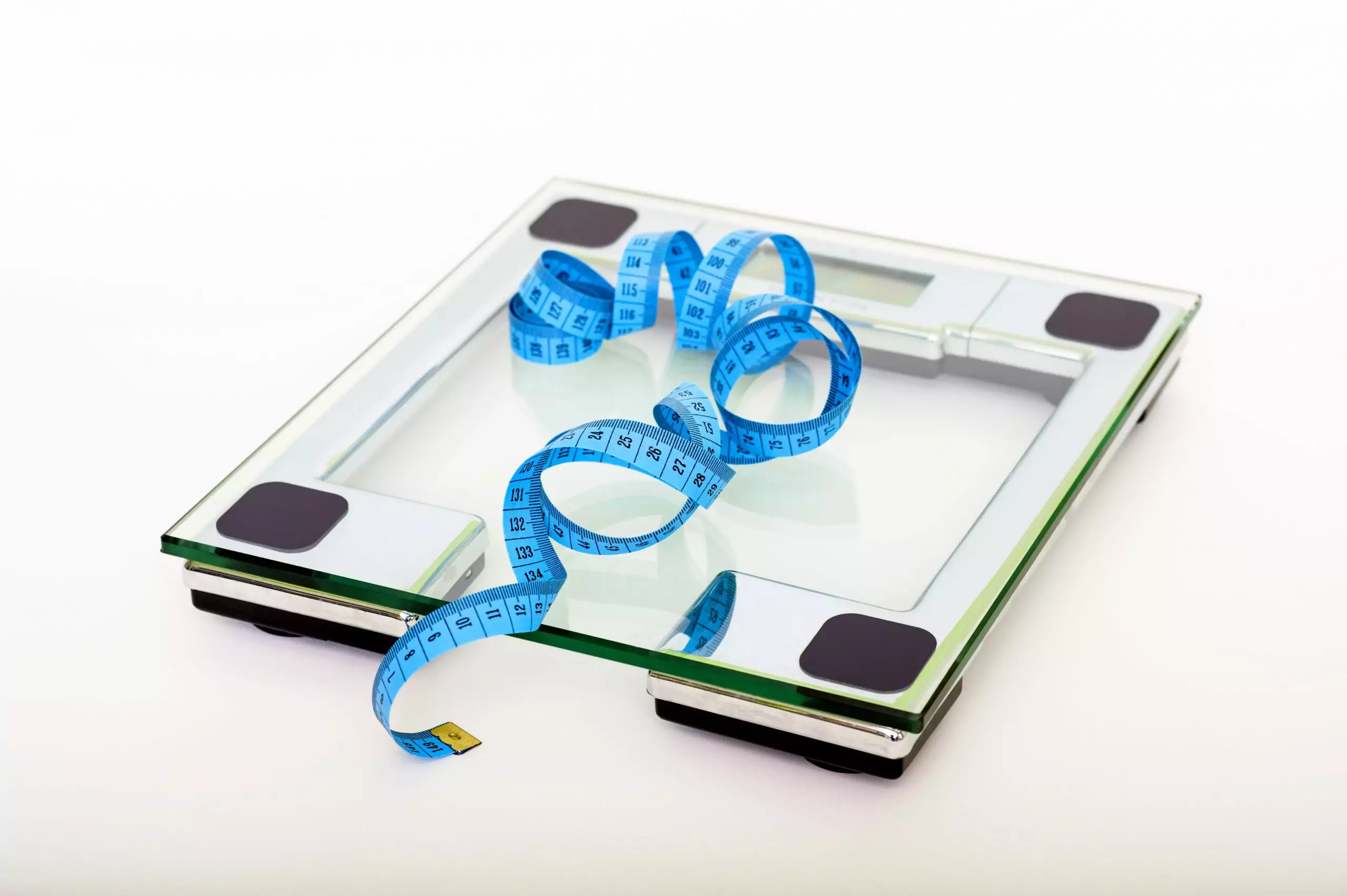Do Fibroids Make You Gain Weight?
Many women want to know—do fibroids cause weight gain? Uterine fibroids can cause bloating and weight gain—both directly and indirectly. Learn more about the cause of fibroid-related weight gain and what you can do about it.
Direct causes of fibroids weight gain and bloating
There are two primary ways that fibroids can directly cause weight gain:
- The weight of the fibroid itself
- A hormone imbalance

If you feel bloated or like you’ve put on weight, these are both potential symptoms caused by fibroids.
Fibroid size and weight
The sizes and weights of fibroids can vary wildly. Some never grow larger than a pea and can go undetected by both patient and doctor. Others, however, can grow to the size of a watermelon and weigh anywhere from 20 to 40 pounds. Most fibroids fall somewhere on the spectrum between these two extremes.
The larger the fibroid, the more weight you are carrying around in your body. Depending on its size and placement, a fibroid may also interfere with your bladder and/or bowel, causing:
- Urinary incontinence
- Difficulty with urination
- Constipation.
These symptoms can result in a sensation of bloating and/or actual bloating.
Hormone imbalance
In a catch-22, hormone imbalances can cause fibroids, and fibroids, in turn, can cause hormone imbalances. These imbalances may affect your metabolism. While some hormone imbalances can cause weight loss, others cause weight gain by slowing your metabolism and promoting water retention.
Hormone imbalances can also affect the growth rate of fibroids. Estrogen surges caused by pregnancy and perimenopause can accelerate fibroid growth, which also translates to rapid weight gain.
Indirect causes of fibroids weight gain
Indirect causes of weight gain and bloating have to do with behavioral responses to fibroids and their symptoms. Even if you haven’t received an official diagnosis yet, you may be experiencing some of the following symptoms:
- Pain
- Heaving bleeding during menstruation and/or between periods
- Fatigue
- More frequent urination or difficulty urinating
- Constipation
- Anemia
Fatigue, chronic pain, discomfort, and even missed work due to severe symptoms can raise your stress levels.

You may find yourself turning to comfort foods as a coping mechanism for fibroid-related symptoms.
In order to cope with these symptoms, you might be:
- Eating more “comfort foods” than usual, including starchy and sugary carbohydrates and foods high in salt and saturated fats
- Eating more often than you normally do
- Exercising less, whether through formal workouts or incidental exercises, such as walking or gardening
These coping mechanisms may have short-term benefits but can be harmful in the long term. When accompanied by less physical activity, consuming additional calories from foods high in carbohydrates and saturated fats encourage weight gain and excess salt causes water retention. Carrying extra weight, particularly abdominal fat, can also speed up fibroid growth.
How can I reduce weight gain and bloating from fibroids?
A combination of fibroid treatment and simple lifestyle changes can help reduce weight gain and bloating.
This may include:
- Medications that mitigate hormone imbalance to control bleeding and/or shrink fibroids
- Surgeries that remove your fibroids in their entirety
- Trading your traditional comfort foods for healthy alternatives
- Consuming fewer calories while consciously engaging in light activity, such as walking
It’s important to schedule a time to speak to your doctor or care team in order to create a plan that’s appropriate for your symptoms and situation.


